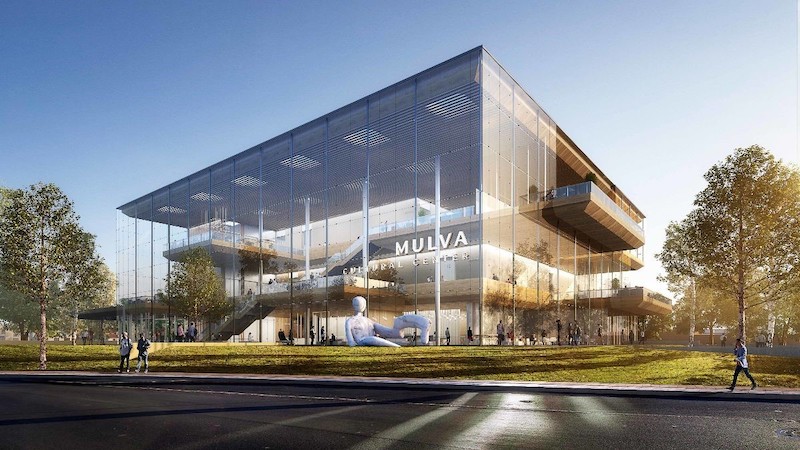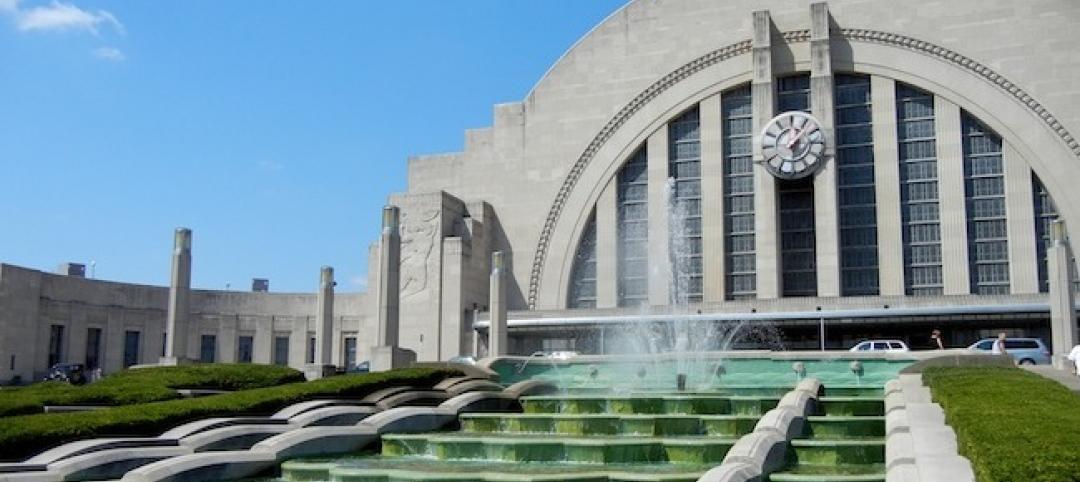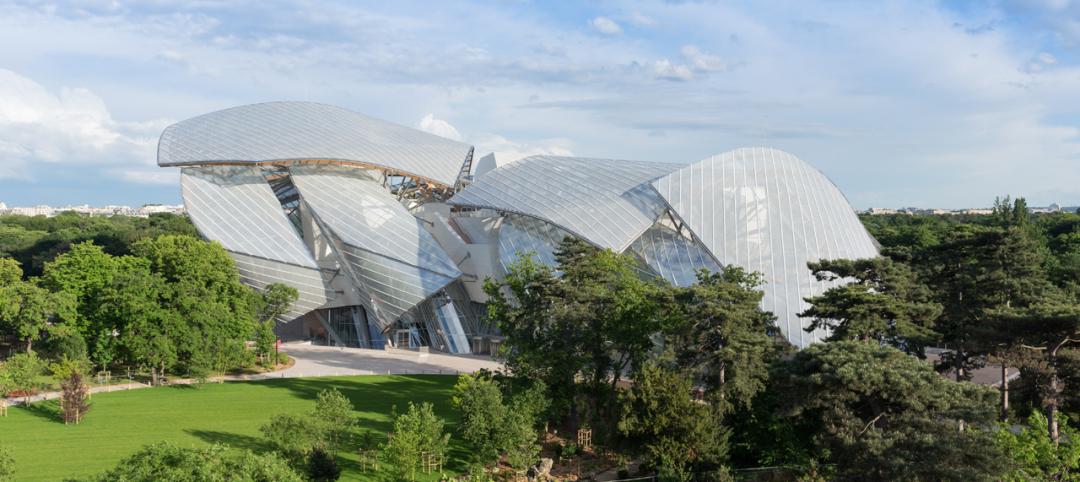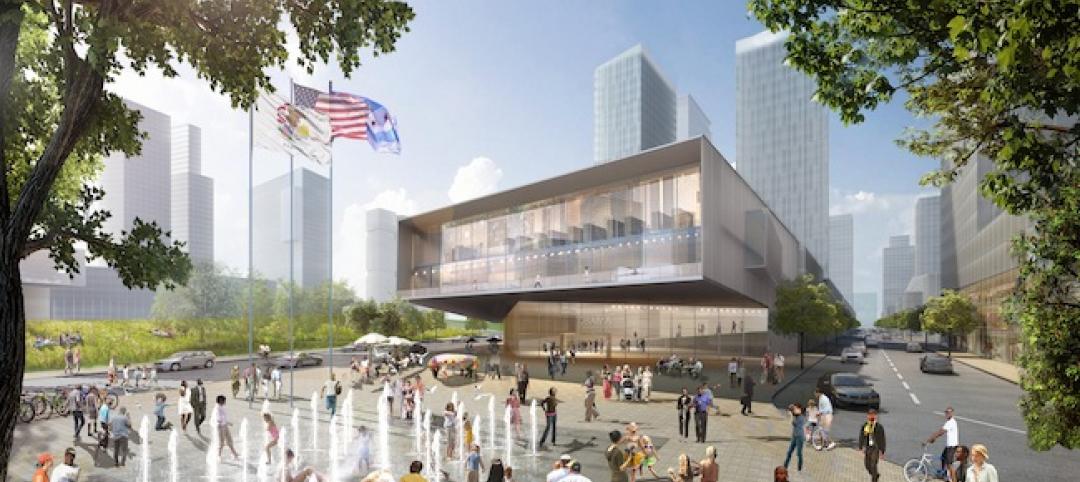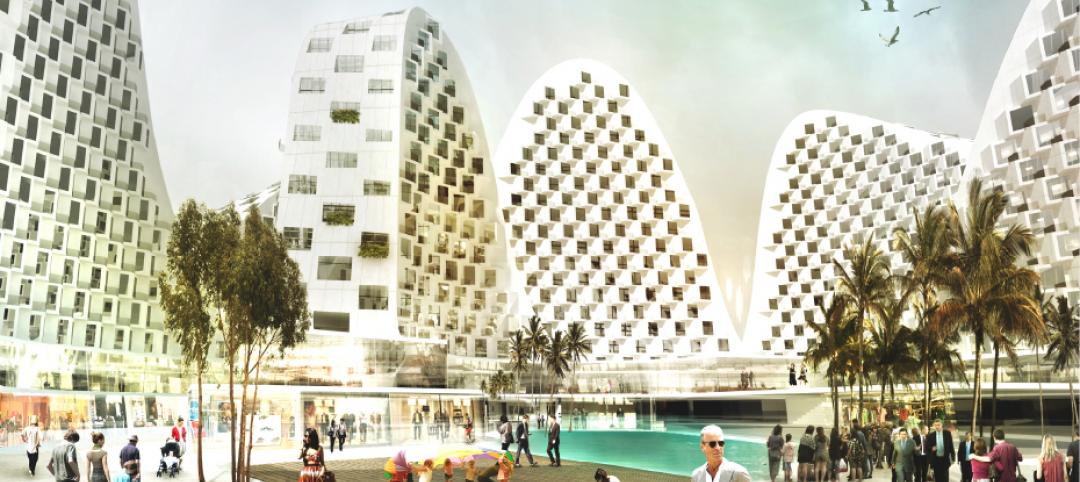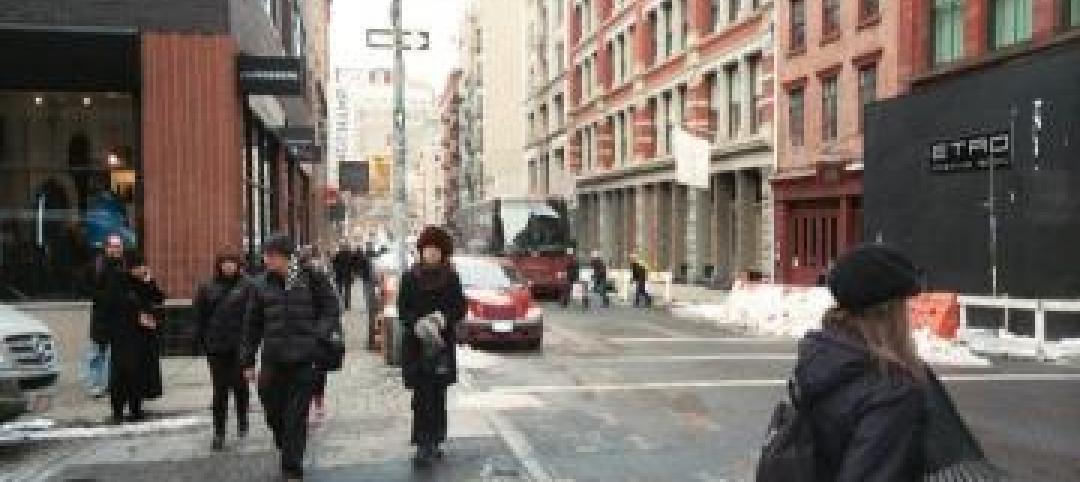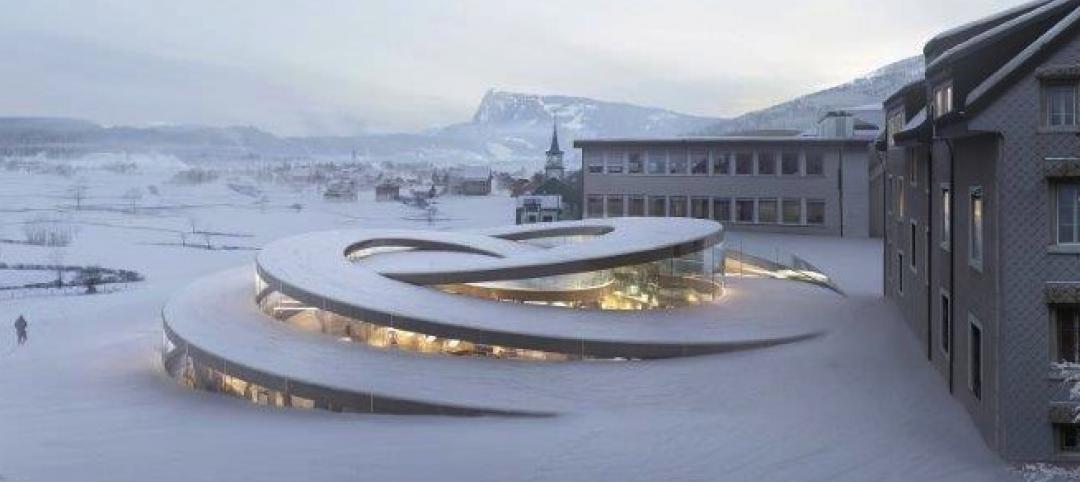The City of De Pere, Wis., began in the 17th century as a fishing village with a monastery, grew to be an incorporated city by the 1860s and has a National Register of Historic Places historic district with dozens of homes in a variety of styles that were built from the early 19th to early 20th centuries.
That architectural legacy is only part of what makes the small city attractive to some. Now, thanks to the generosity of James and Miriam Mulva, who have in recent years donated tens of millions of dollars to various groups, a new artistic focal point will draw new visitors, and enliven the historic town.
The wife and husband philanthropists recently announced designs for the Mulva Cultural Center, which will be in De Pere. The building will have an exterior made of transparent glass and will be a setting of arts activities and a focal point of the city’s arts community.
See Also: Puerto Rican mixed-use, mixed income housing development begins construction
Designed by the Skidmore, Owings & Merrill architecture firm (SOM), the center will be situated along the Fox River.
“The hiring of SOM as the architect for the Mulva Cultural Center shows just how significant this project is for the City of De Pere and the people of Northeast Wisconsin. It underscores our family’s longstanding commitment to enhancing the community my wife Miriam and I have known and loved since our childhood,” says Jim Mulva. “We are honored and thrilled to partner with SOM on what is a grand plan for bringing this addition to the heart of historic downtown De Pere as part of the city’s new Cultural District Master Plan.”
The 60,000-square-foot center will host traveling art exhibitions, provide cultural programming and educational programming, and host other activities. The plans for the center follow a long-term strategy for the future of the city, which is in the Greater Green Bay Area.
“As a city, we have always been incredibly proud of our rich history and traditions while also endlessly striving to build a vibrant and forward-thinking future,” says De Pere Mayor Mike Walsh. “The Mulva Cultural Center embodies that spirit. We look forward to this world-class addition, and we are grateful for this significant opportunity to enrich and grow our community.”
The Mulva Cultural Center will have an open-air atrium spanning the building’s three stories., and a large auditorium. The center also will have flexible permanent and temporary exhibition spaces, event space, classrooms, a café, and an outdoor terrace.
Related Stories
| Jun 25, 2014
Frank Lloyd Wright’s Spring House, Cincinnati’s Union Terminal among 11 Most Endangered Historic Places for 2014
The National Trust for Historic Preservation released its annual list of 11 Most Endangered Historical Sites in the United States for 2014.
| Jun 23, 2014
Gehry's 'glass sail' cultural center for Foundation Louis Vuitton set to open in October
Comissioned by Bernard Arnault, American legendary architect Frank Gehry's newest structure in Paris for Foundation Louis Vuitton will house eleven galleries and an auditorium for performing arts.
| Jun 20, 2014
HOK releases proposal for Obama Library and Museum Campus
Proposal would locate the library in Chicago's historic Bronzeville neighborhood, aiming for urban revitalization as well as Living Building certification.
| Jun 20, 2014
Sterling Bay pulled on board for Chicago Old Main Post Office project
Sterling Bay Cos. and Bill Davies' International Property Developers North America partner up for a $500 million restoration of Chicago's Old Main Post Office
| Jun 19, 2014
First look: JDS Architects' roller-coaster-like design for Istanbul waterfront development
The development's wavy and groovy design promises unobstructed views of the Marmara Sea for every unit.
| Jun 18, 2014
Six World Cup stadiums have achieved LEED certification
In conjunction with the 2014 FIFA World Cup in Brazil, the U.S. Green Building Council (USGBC) announced that six World Cup stadiums have achieved LEED certification, including South America’s largest stadium, Maracanã in Rio de Janeiro.
| Jun 18, 2014
Study shows walkable urbanism has positive economic impact
Walkable communities have a higher GDP, greater wealth, and higher percentages of college grads, according to a new study by George Washington University.
| Jun 18, 2014
Arup uses 3D printing to fabricate one-of-a-kind structural steel components
The firm's research shows that 3D printing has the potential to reduce costs, cut waste, and slash the carbon footprint of the construction sector.
| Jun 16, 2014
6 U.S. cities at the forefront of innovation districts
A new Brookings Institution study records the emergence of “competitive places that are also cool spaces.”
| Jun 13, 2014
First look: BIG's spiraling museum for watchmaker Audemars Piguet
The glass-and-steel pavilion's spiral structure acts as a storytelling device for the company's history.


